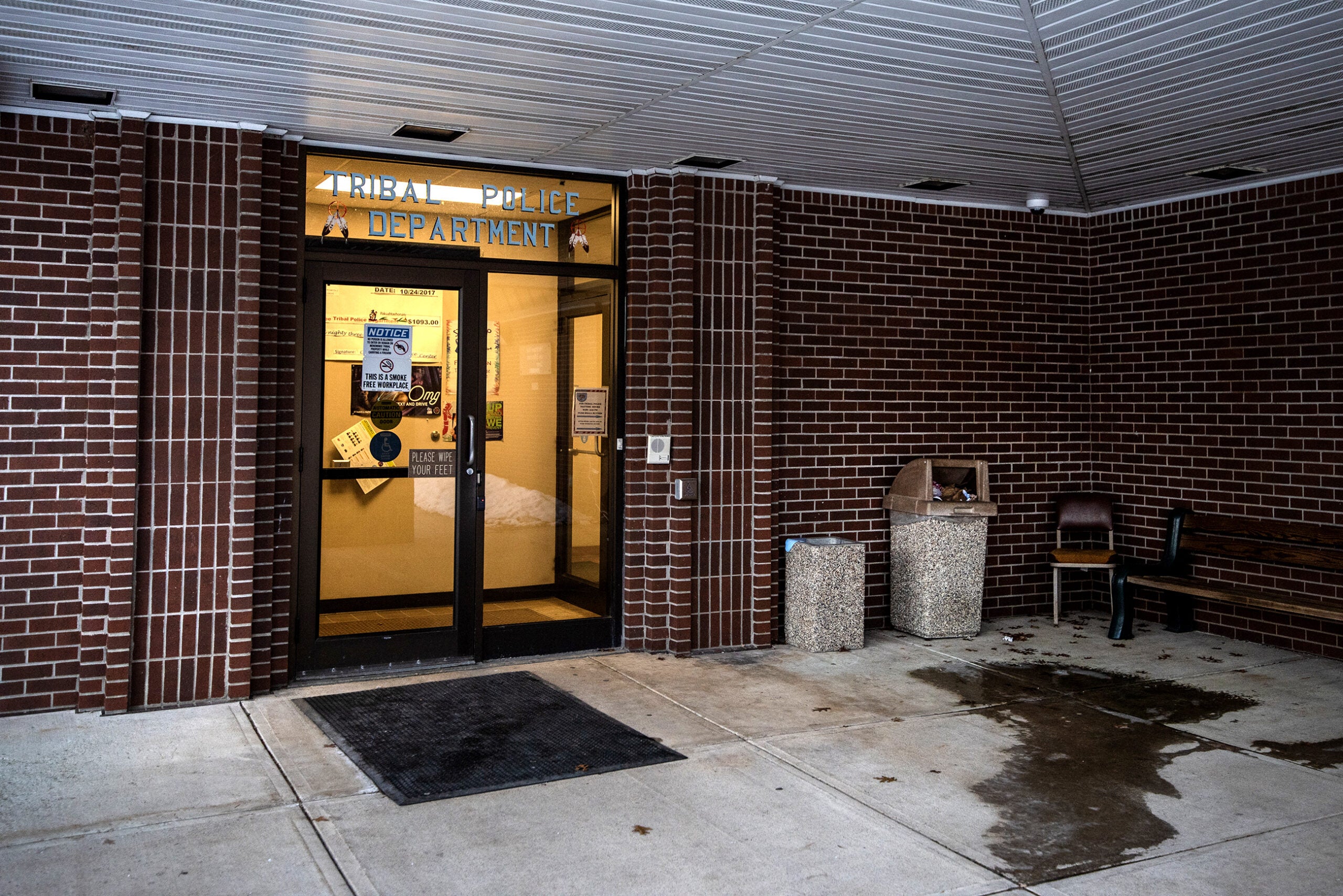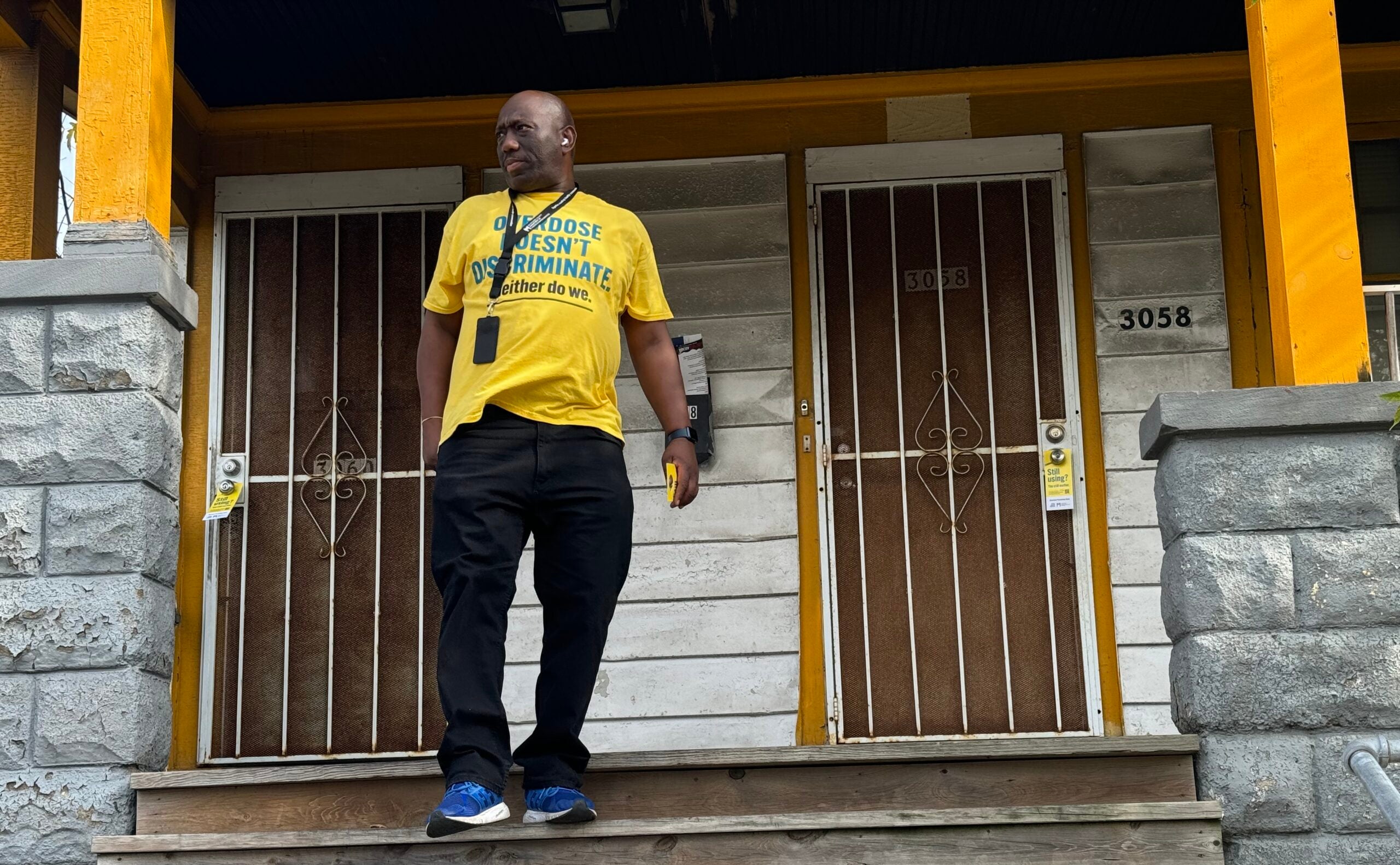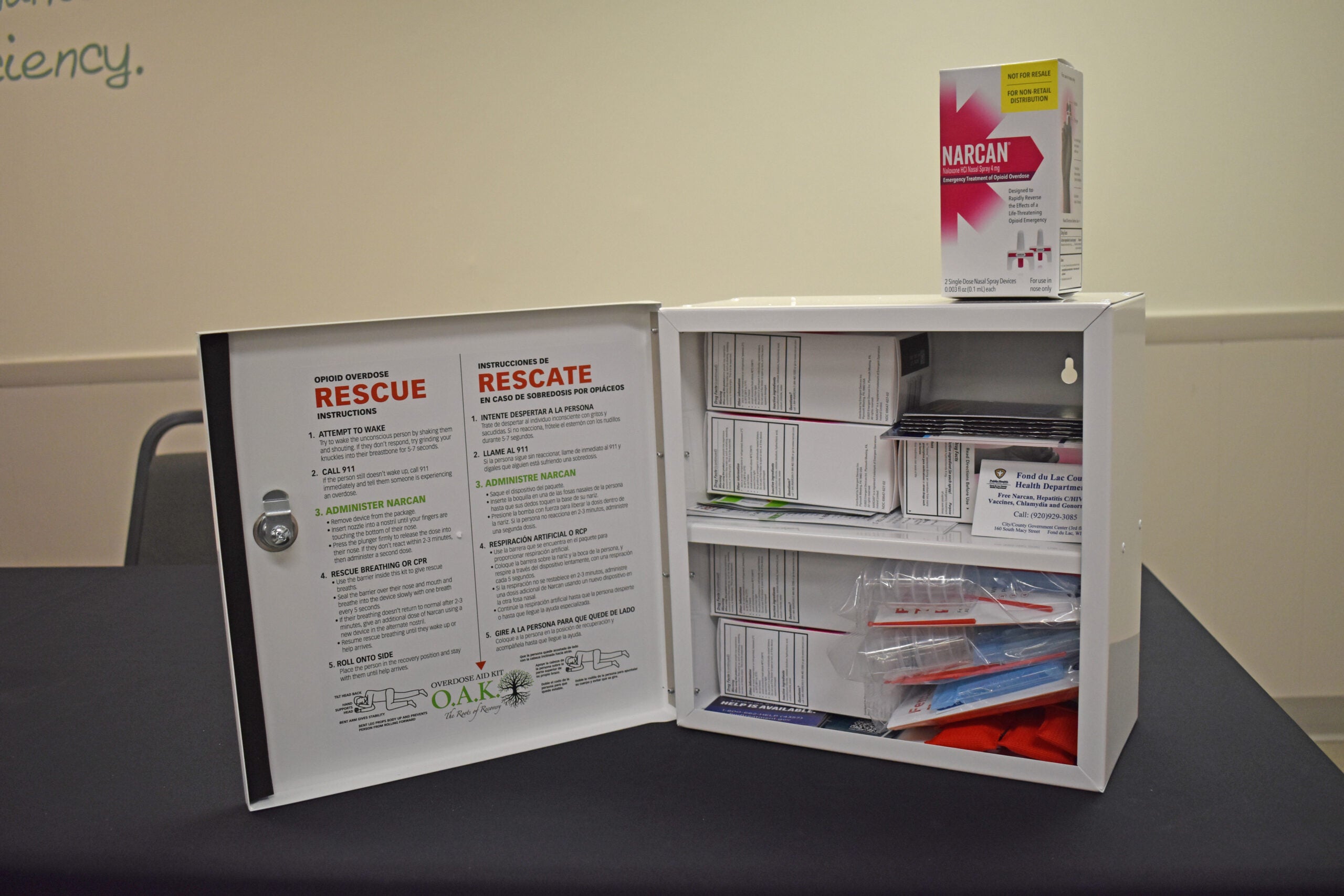The Menominee Indian Tribe of Wisconsin has seen a sharp decline in overdoses resulting in hospitalization or death this year, after two years of record-high overdose deaths on the reservation.
So far this year, the tribe has seen a nearly 70 percent decrease in overdoses leading to hospitalizations or deaths, the Menominee announced in a recent news release.
In a statement, Ben Warrington, emergency management director and co-chair of the Menominee Tribe’s Drug Addiction Intervention Team, said the decrease is promising. He called the data a testament to tribal organizations’ efforts to provide accurate information, education and necessary resources to those struggling with addiction.
Stay informed on the latest news
Sign up for WPR’s email newsletter.
“This fight may never be over, but we will continue to work together to find solutions that lead to healthy outcomes for our communities, now and in the future,” Warrington stated.
In 2022, the Menominee declared a state of emergency related to the impacts of drug use and addiction. That year, Menominee County, home to the tribe’s reservation, had the highest overdose death rate in all of Wisconsin.
In May, the U.S. Centers for Disease Control and Prevention reported that overdose deaths declined nationally by 3 percent from 2022 to 2023.
But the Menominee actually saw an increase from 2022 to 2023. The tribe recorded 16 overdose deaths in 2022 and 19 in 2023, according to Addie Caldwell, Director of Wellness Programs at Maehnowesekiyah Wellness Center and co-chair of the Drug Addiction Intervention Team.
“Last year, by far, was our greatest year of loss,” Caldwell said.
The tribe has only seen three overdose deaths so far this year, marking a significant change, Caldwell said.
She said the tribe declaring a state of emergency in 2022 led to a community meeting that generated ideas about how to address the opioid crisis. That meeting then led to increased cooperation between local organizations through the Drug Addiction Intervention Team to expand outreach and find gaps in existing addiction resources.
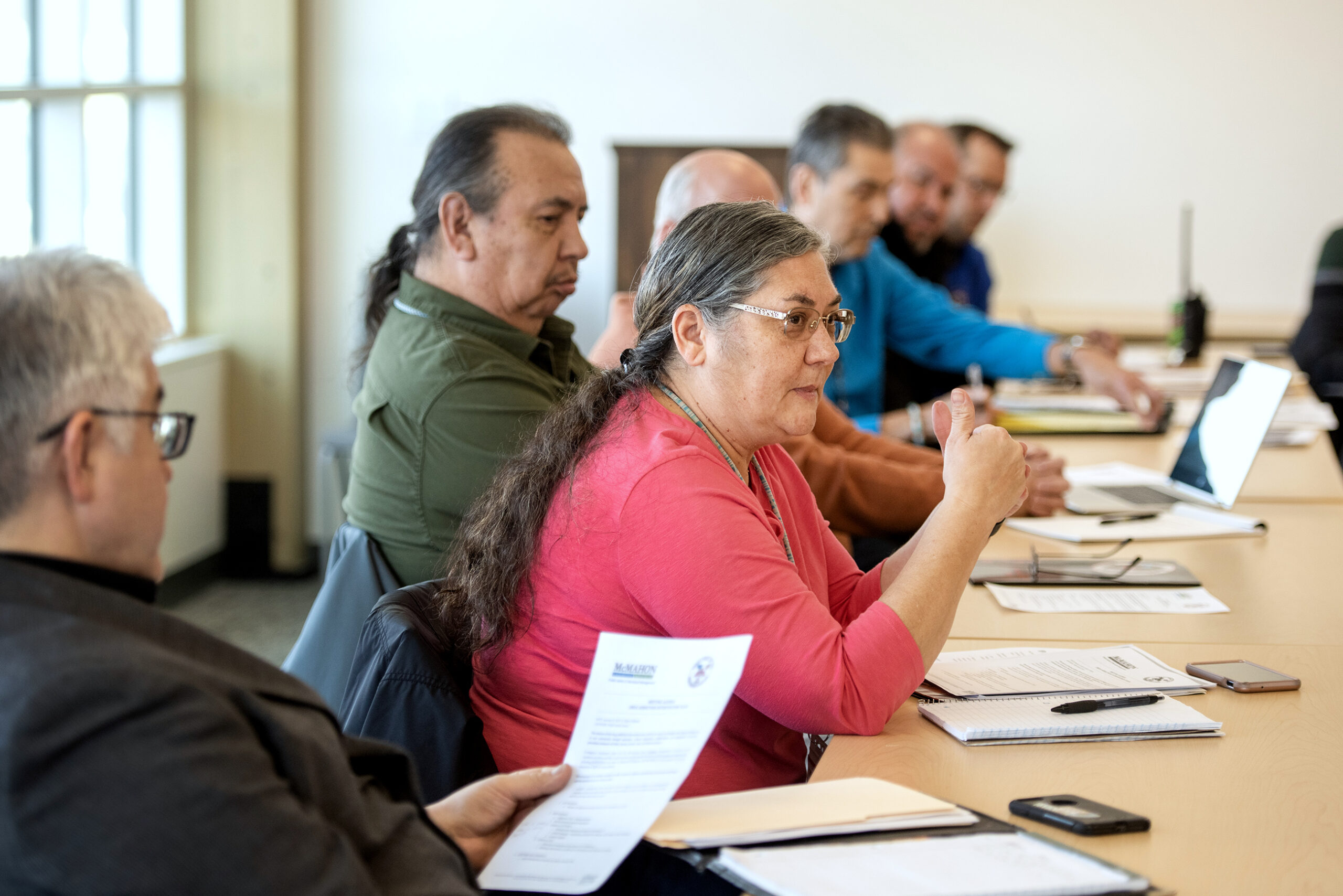
“That team was really formed to look at the problem as a whole, and from there, we all collaboratively made these goals,” Caldwell said. “I feel like that was a huge part of making or decreasing those overdose levels.”
One of the biggest areas of focus was community education, aimed at reducing the stigma around addiction and fostering more understanding, Caldwell said.
“At the end of the day, these are our brothers, these are our sisters, these are our moms, our dads. It’s our community,” she said. “The easiest thing about addiction is that we can point fingers, and we can blame people. But it is a community issue.”
Caldwell said the tribe also used data to find “hot spots,” places in the community with a disproportionate number of overdoses, and “hot times” when overdoses were happening more frequently. Using that data, she says the community was able to get recovery coaches on the ground to help make people aware that resources were available.
She said the community also worked on harm reduction, which included increasing the supply of fentanyl test strips and Narcan. Fentanyl test strips are small strips of paper that can detect the presence of fentanyl in different kinds of drugs, and Narcan is a medication that rapidly reverses the effects of an overdose.
“Narcan is critical,” Caldwell said. “I know there’s a lot of opinions out there thinking that we’re giving this stuff out, and it just is making people overdose or use more. But in all reality, it’s saving a life. It’s nothing more than that.”
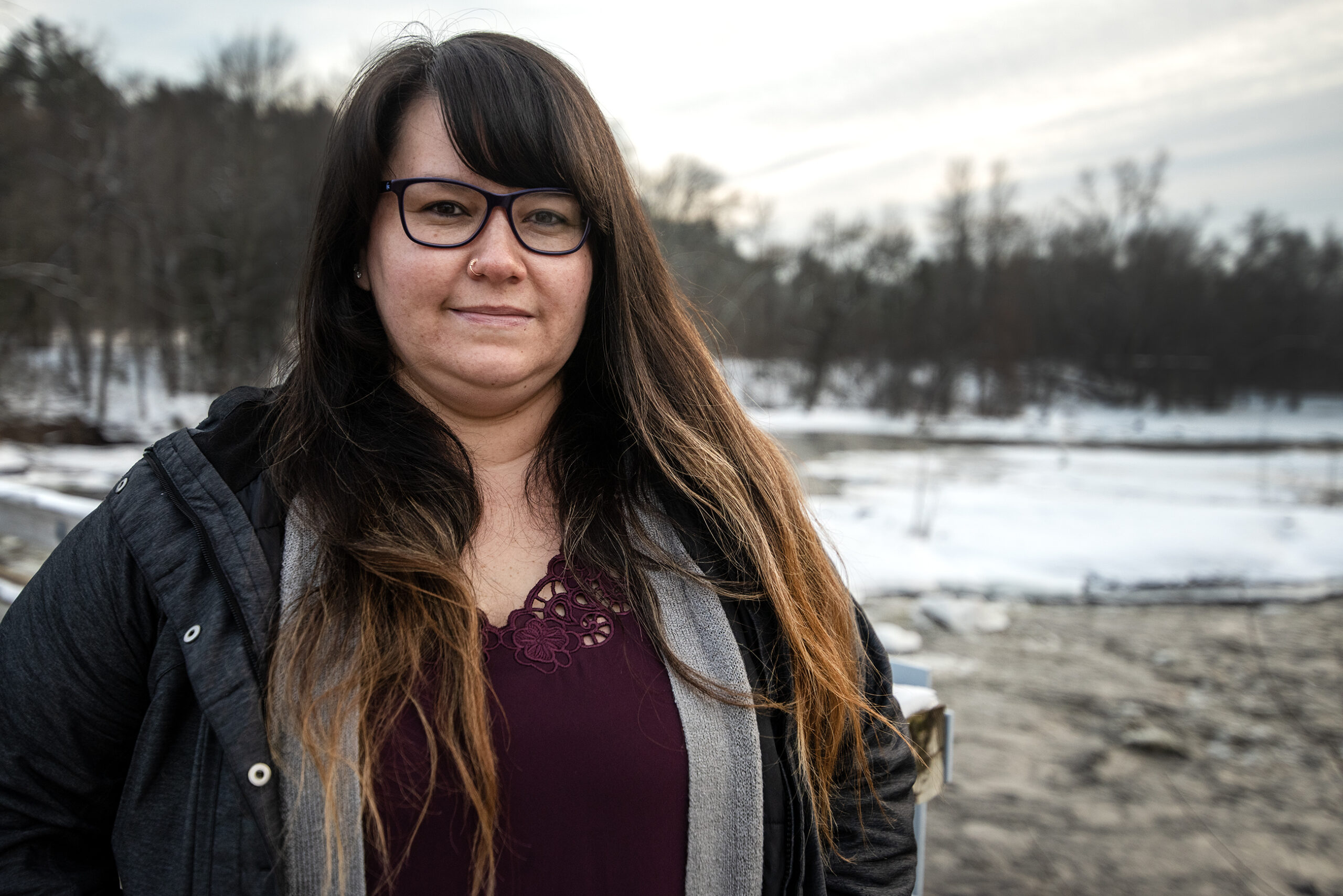
Caldwell said she believes making Narcan available to “anyone and everyone” is likely the “No. 1 thing that changed within this community to help drop our overdose rates.”
There’s also been a mindset shift in the community, she said, especially among the tribe’s young people, where individuals are more willing to ask for help and acknowledge a desire to change.
The Maehnowesekiyah Wellness Center, where Caldwell works, has seen an increase in the number of patients seeking assistance for mental health or addiction issues. She said the tribe is also trying to increase early intervention efforts.
“We actually are trying to increase our interventions or almost prevention-type efforts within our schools,” Caldwell said. “We’re trying to get in there earlier and earlier, or provide opportunities to our parents to just have some discussion.”
While the Menominee are encouraged by the sharp decrease in overdose deaths and hospitalizations, Caldwell says there’s still work to do. She views it as an investment that will pay off for future generations.
“This is work that is going to continue to need attention,” she said. “Just like someone that’s in recovery, that’s something they have to work on for the rest of their lives, we’re going to keep fighting against drugs and alcohol and all the things that come with addiction.”
Wisconsin Public Radio, © Copyright 2025, Board of Regents of the University of Wisconsin System and Wisconsin Educational Communications Board.
